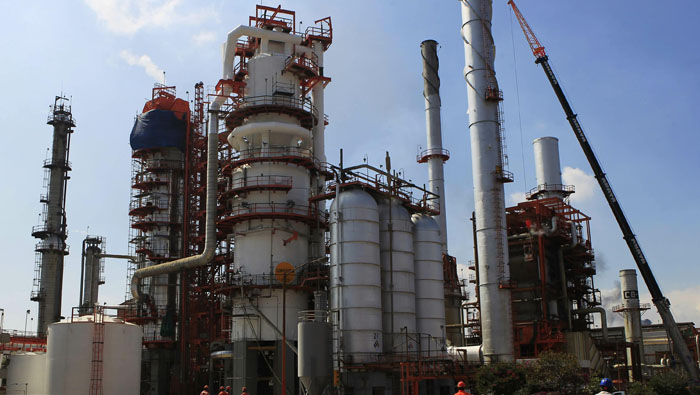
London: Oil fell to a three-month low in New York as supplies were considered plentiful even as stockpiles were seen deepening a record pullback in the United States, the biggest fuel consumer.
West Texas Intermediate futures declined 1.3 per cent after falling 2.4 per cent on Monday. While US crude inventories probably slid by 2.25 million barrels last week, gasoline supplies may have added 600,000 barrels, swelling stockpiles already at their highest in decades, according to a survey before a government report on Wednesday.
Crude has slipped more than 15 per cent since early June after almost doubling from a 12-year low in February as supply disruptions from Nigeria to Canada trimmed a worldwide surplus. BP, the first oil major to report second-quarter results, missed analyst estimates as lower prices continued to erode income and refining margins shrank.
“We still have a little bit of downside room left,” Andy Sommer, an analyst at Axpo Trading in Dietikon, Switzerland, said by phone. While “we are pretty balanced in that $40 to $55 range,” there “could be bearish surprises on the supply side in the coming months.”
West Texas Intermediate for September delivery dropped as much as 71 cents to $42.42 a barrel on the New York Mercantile Exchange, the lowest since April 20, and traded for $42.56. The contract lost $1.06 to $43.13 on Monday. Total volume traded Tuesday was in line with the 100-day average.
US stockpiles
Brent for September settlement fell 42 cents, or 0.9 percent, to $44.30 a barrel on the London-based ICE Futures Europe exchange, trading at a premium of $1.74 to WTI. The global benchmark crude declined 2.1 percent to $44.72 on Monday.
US stockpiles were at 519.5 million barrels in the week ended July 15, more than 100 million barrels above the five-year average, according to data from the Energy Information Administration. Crude production increased for a second week to 8.5 million barrels a day as the nation’s drillers put rigs back to work.
“On a global basis we’re not building stocks anymore but the fact that stocks remain high is a reason for caution,” Mike Wittner, head of oil-market research at Societe Generale, said by phone. “I don’t think we’re going lower than $40. There’s a soft floor there as the market is broadly balanced.”
China National Petroleum Corporation said its Changqing field, the country’s biggest oil and gas producer, rebounded from losses earlier this year to post a first-half profit amid reduced spending. The reopening of two of Libya’s biggest oil ports may be delayed as the hardening positions of rival factions pose a fresh challenge to international efforts to reunite the country and restore its exports. Structural changes are required to keep the North Sea competitive amid low oil prices, Royal Dutch Shell said before workers went on strike.